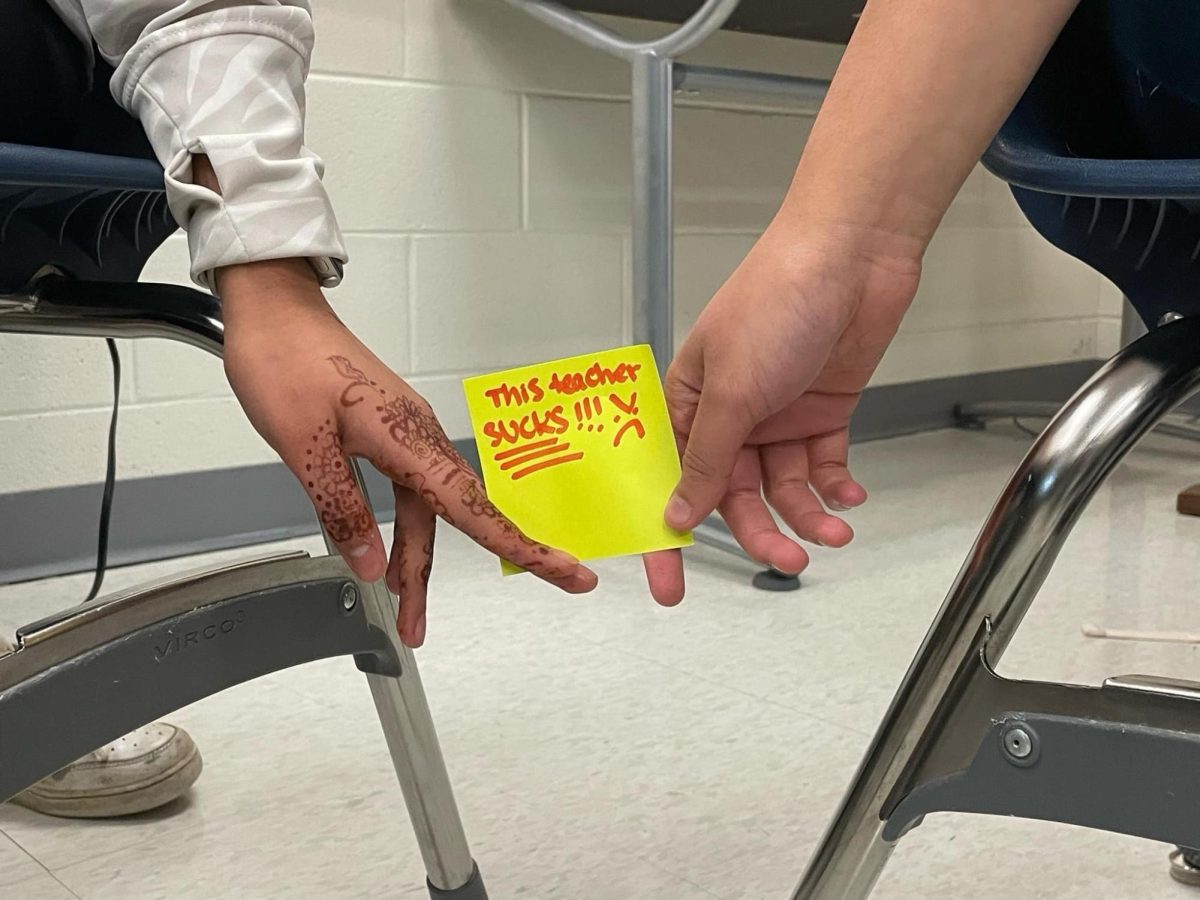It is finally the first day of school. As you walk into the first class of the day, you remember that one of your older friends said your teacher is a horrible, mean person who takes off points from tests for no reason at all. You sit down at your seat and you see them at the front as they begin the usual “welcome to school” speech. It’s barely been 10 minutes, but you already hate this teacher.
As the new school year begins, older students “giving advice” about new teachers is a fairly common thing. At Jefferson, there is a school-wide shared document that informs others about their experiences with certain teachers. However, these seemingly harmless tips can ruin positive and beneficial student-teacher relationships.
Going into a classroom with a preconceived negative perception of a teacher causes the student to have poor relationships with the teacher for the rest of the school year, and in extreme cases, even drop the class altogether. I know somebody who requested her counselor to remove her from a class due to preconceived notions she had about the teacher. While her request was not fulfilled, she ended up having a very stressful time in that class. However, I was in the same class as her, but I didn’t have any issues with the teacher. There were often moments when my friend would just be rude for no apparent reason, rolling her eyes after every interaction.
Similarly, I’ve had friends walk into class on the first day telling me that our teacher sucks. While I had chosen to take the class after reading the course description and talking to the teachers prior to course selections, my friend told me that our teacher was awful.
Our perception of another person can be influenced by our past experiences and our own personality theories. So, due to what my friend had told me, it was difficult to stay unbiased and ignore the complaints. I didn’t like the teacher and thought that the teacher was being irrational. Luckily, these views did not last long, and by the end of the year, I enjoyed the class. I even had several conversations with my teacher about various topics not included in the curricula.
However, my friend, who had told me all of the bad things they heard about our teacher, had a bad relationship with the teacher. They often “forgot” to do the homework and was blatantly disrespectful whenever confronted about not turning in assignments. This led to a stressful class period for my friend and only worsened her negative opinions about the class and teacher.
While some may argue that telling friends about their past experiences with teachers is beneficial so that they know of particularly bad events, it is still only one side of the story. That friend may have unknowingly instigated a conflict or been disrespectful to the teacher to warrant a negative response.
Additionally, doing things just to get a teacher to like you is not a good idea. The best way to be more friendly with teachers is to have more conversations with them and be civil. Sometimes, people don’t get along, and that’s okay. However, despite these contrasts in character, it is important to respect your teachers and talk out any disputes in rational ways.
Rather than complaining about teachers or exaggerating negative experiences, it would benefit everyone to discuss assignments to look forward to such as interesting projects or eye-opening papers. Teachers have feelings too, and it is important to remember that they also work hard to provide us with quality education at Jefferson.


